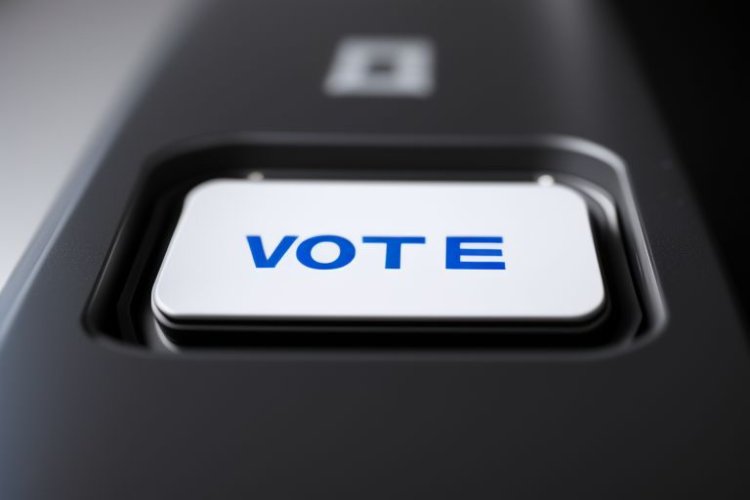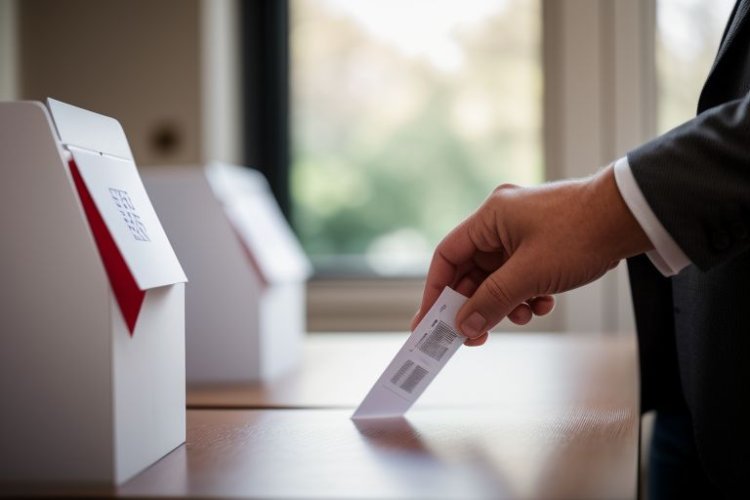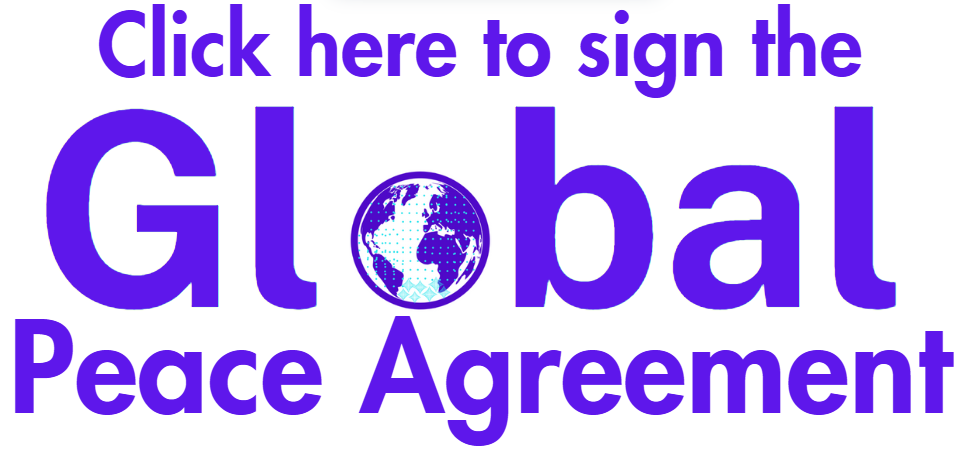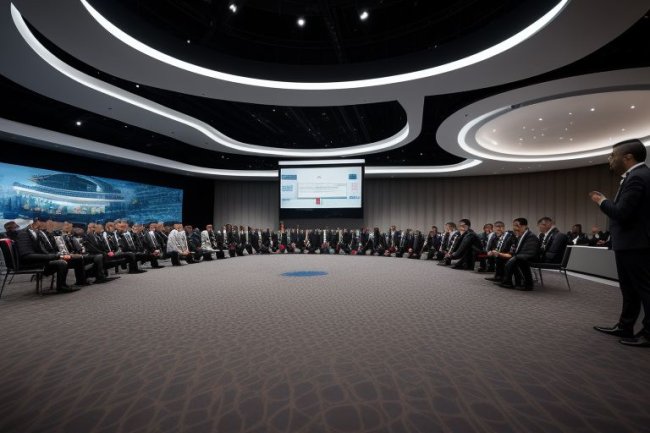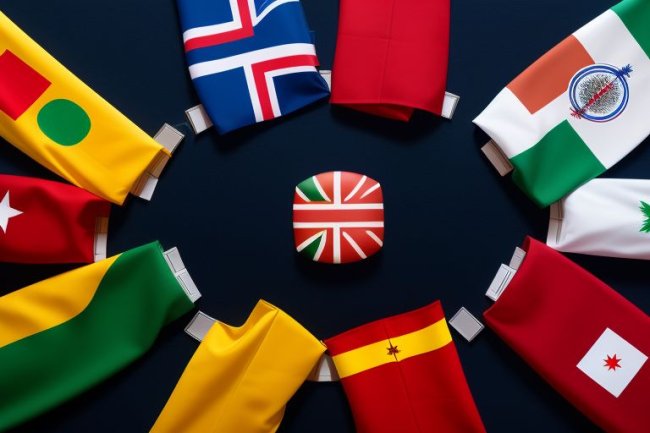Addressing Impediments to Equal Voting Representation
Equal voting representation is a fundamental tenet in the quest for a fair and just international order. However, reaching this goal is still challenging because of multiple obstacles to equal voting participation in various decision-making venues. By eliminating the complexities that prevent equal voting participation, we may create a world in which each country's voice matters and influences the course of mankind.
Power Dynamics and Geopolitical Realities
Power dynamics and geopolitical realities greatly shadow the goal of equal vote representation within the complex web of global governance. Rather than mirroring the intricacies of the contemporary global landscape, the intricate structures of international organizations such as the United Nations (UN) or the World Trade Organization (WTO) often replicate historical reverberations and economic dominance. This complex dance of power obscures the core of equal representation, and the voices of less powerful nations are consigned to the margins.
In this global theater, the stage is often set by powerful nations' historical legacies and economic prowess. The distribution of voting power is akin to a historical inheritance, where those who held sway in the past continue to wield disproportionate influence in shaping present-day decisions. While grounded in the realities of yesteryears, such a system fails to account for the shifting tides of progress and evolution.
The glaring disparity between major powers and their lesser counterparts creates a dissonance between representation and reality. The voices of smaller nations, with unique perspectives and varied challenges, are muffled in the face of the symphony played by larger, more influential nations. The outcome is an orchestra dominated by a select few, with the harmonious balance of equal representation relegated to a mere backdrop.
Perhaps this is more evident than in the hallowed chambers of the UN Security Council. A chamber that wields the power to shape the fate of nations, its structure often thwarts the aspirations of the many in favor of the privileged few. The perpetual veto power of permanent members, while a relic of post-World War II geopolitics, erects barriers that hinder the emergence of a truly inclusive global order. This elite club often steers key decisions, far-reaching and impactful, leaving the vision of equal voting representation enshrined in the UN's charter teetering on the edge of disillusionment.
The imbalance, while embedded in the fabric of these institutions, is a testament to the profound challenges that equal voting representation faces. It is an indictment of a world order that struggles to evolve beyond the footprints of history. The repercussions reverberate through diplomatic corridors and negotiation tables, where the aspirations of nations, irrespective of size or power, strive to find resonance.
The quest for equitable vote representation remains a steadfast goal in this complex interplay of power. It demands a resetting of the scales, a change that acknowledges the changing dynamics of the world and welcomes a chorus where each nation's voice is valid and cherished. The path toward a society where equitable representation is not just a far-off fantasy but a living, breathing reality begins with transcending the tyranny of historical legacies and economic might. It's a journey that challenges the status quo, reshapes the narratives of power, and weaves a narrative where the symphony of voices resonates in harmony, crafting a new symphony of global governance.
Economic Disparities and Limited Resources
Economic inequalities throw a looming shadow in the complex theater of international decision-making, offering a tremendous barrier to the fulfillment of equal vote participation. The spotlight frequently favors those with economic clout on the stage where nations congregate to discuss and choose the future of the globe. Developing countries need help with the limitations of scarce resources, which limits their capacity to participate effectively in these forums. The result is a story of uneven involvement, in which the resonance of the wealthy drowns out the voices of those fighting to stay up.
In this global arena, attending international conferences, negotiating treaties, and participating in multilateral dialogues require more than intellectual prowess – they demand financial and technical resources that often lie beyond the reach of developing nations. The cost of participation in these discussions extends beyond travel expenses; it encompasses the deployment of expertise, access to information, and the capacity to maneuver through the complex labyrinth of international diplomacy. As developing nations grapple with the intricate jigsaw puzzle of limited resources, their seats at the table are, by default, disadvantaged.
This financial chasm perpetuates a cycle of unequal representation. Developed nations, equipped with robust economies and ample resources, waltz through the complex choreography of international negotiations with relative ease. The corridors of influence are more accessible, and the engagement mechanisms are more navigable. The consequence is a symphony of voices that, while distinct, often harmonize along economic lines, distorting the principle of equal voting representation.
The repercussions of this economic discrepancy resonate far beyond mere participation. A world that pivots on the fulcrum of economic prowess nurtures a culture where the power to shape global narratives is linked to the strength of one's currency. This perpetuates a cycle where the economically powerful continue to wield disproportionate influence, their decisions echoing in corridors of power. Meanwhile, the voices of nations striving to bridge the economic divide are muted, their aspirations held hostage by the weight of their economic constraints.
To dismantle this cycle is to embark on a journey of empowerment. It is to recognize that equal voting representation must transcend economic barriers, embracing the diversity of perspectives that enrich the global discourse. Strategies that level the playing field, such as resource allocation and technical support for developing nations, become instrumental in reshaping the narrative. As these measures take root, a new symphony of voices can emerge, harmonizing across economic lines and resonating with the principle that all nations, regardless of their economic stature, hold an indispensable role in shaping global destiny.
In this pursuit, the world stands on the threshold of transformation – a transformation that bridges the economic chasm and empowers nations to participate on equal footing. As the echo of unequal resources fades and the chorus of diverse voices swells, the world inches closer to the symphony of equal voting representation, a harmonious tapestry woven with the threads of shared destiny and collective aspirations.
Complexities of Cultural Diversity and Languages
The complexities of cultural diversity and languages are a profound impediment to realizing equal voting representation. The grand theater of international discourse aims to weave together the myriad threads of cultures, languages, and perspectives, yet within this intricate tapestry lies a challenge that often goes unnoticed – the dominance of a few languages and the cultural barriers they unintentionally erect.
Global institutions strive to serve as a microcosm of humanity, representing the rich tapestry of cultures that define our world. However, the linguistic landscape is often tilted in favor of a select few, with languages like English emerging as communication conduits. While serving as a lingua franca, this linguistic monopoly inadvertently marginalizes non-English-speaking nations, their voices muted in a chorus dominated by a single tongue. This imbalance disrupts the harmony of equal representation, erecting barriers that hinder the articulation of perspectives.
The challenge extends beyond mere communication; it delves into cultural nuances that define national identities. When nations gather to deliberate and shape the global narrative, the complexities of cultural differences can often be lost in translation. The subtleties that make a point profound or a sentiment profound can dissipate, leading to misunderstandings that permeate negotiations and decision-making processes.
This linguistic and cultural labyrinth often leaves nations needing help to voice their viewpoints effectively. As the world converges to discuss crucial matters, some nations grapple to articulate their stances. Consequently, equal voting representation becomes an idealistic aspiration rather than a tangible reality.
To navigate these complexities is to recognize that representation must extend beyond language. It involves elevating cultural diversity as a cornerstone, acknowledging that each voice, irrespective of its linguistic origin, carries unique insights and experiences. It involves adopting strategies that bridge the linguistic gap, such as enhanced translation services and efforts to promote multilingualism within global institutions.
Moreover, the recognition of cultural nuances must take center stage. Efforts to ensure that translations preserve the essence of each nation's perspective are pivotal. This can be achieved through cross-cultural training, fostering a deeper understanding of cultural contexts among diplomats and negotiators.
In transcending these linguistic and cultural barriers, the global stage can amplify the principle of equal voting representation. It can resonate with many voices, each contributing a distinct hue to the global canvas. As these barriers are dismantled, the world inches closer to a symphony where linguistic diversity and cultural richness harmonize, affirming that all nations, regardless of their languages or cultural contexts, hold a place of significance in shaping humanity's collective destiny.
The journey is complex, requiring a reimagining of communication and negotiation processes. Yet, within this complexity lies the true potential for transformation. This transformation celebrates the mosaic of voices that define our world and resonates with the symphony of equal voting representation, a harmony where diversity and equality intertwine in perfect resonance.
Lack of Civic Awareness and Political Will
The lack of civic awareness and political will within nations is a formidable barrier to equal voting representation. In the theater of international discourse, where nations convene to chart the course of our shared destiny, the absence of informed citizenry and resolute political intent casts a shadow over the pursuit of fairness and equity.
In many corners of the world, citizens need to be made aware of the intricacies and implications of decisions made on the global stage. The grand narratives of international cooperation and equal representation often elude their grasp, creating a chasm between their understanding and the actions of their governments. This disconnect dilutes the urgency of championing equal voting representation, relegating it to the periphery of public consciousness.
Furthermore, the political will to advocate for equal voting representation can falter amidst the clamor of domestic priorities. Governments, ensnared in the web of immediate concerns and competing demands, may need to catch up on the broader context. The allure of short-term gains and political expedience can overshadow the imperative of nurturing a just global order. This discord between the long-term vision of global equity and the immediacy of domestic concerns creates a conundrum that hinders the resonance of equal voting representation.
To navigate this uncharted terrain is to embark on a journey of education and transformation. It calls for a concerted effort to elevate global understanding among citizens, bridging the gap between the decisions of the world stage and their everyday lives. Equipping citizens with the knowledge of the impact of international decisions can elevate the demand for equal voting representation, infusing it with the weight of public support.
Simultaneously, nurturing political will necessitates a recalibration of priorities. Governments must recognize that pursuing global equity is not a distant ideal but a vital cornerstone of their responsibilities. This recognition demands a delicate balancing act, where the urgent and the essential align, paving the way for resolute advocacy for equal representation.
In this transformation journey, nations stand at a crossroads where civic awareness and political will converge. As awareness spreads and political intent aligns, the pursuit of equal voting representation gains momentum. It becomes a shared endeavor that transcends borders and resonates with people's aspirations worldwide.
As the world seeks to overcome this barrier, the path ahead requires unity of purpose and a commitment to change. By fostering civic awareness, governments can harness the power of informed citizenry to propel the demand for equal voting representation. By nurturing political will, they can ensure this demand finds resonance within the hallowed halls of decision-making.
The journey is not without challenges, but it is within these challenges that the potential for transformation lies. As the gap between citizens and global decisions narrows and political intent aligns with the pursuit of equity, the stage is set for a harmonious symphony of voices that collectively shape the course of our shared world. In this world, the principle of equal voting representation resonates as an aspiration and a lived reality.
Strategies for Overcoming Impediments
Addressing these impediments necessitates a multifaceted approach that acknowledges the complexity of the global landscape. To achieve equal voting representation, several strategies can be employed:
1. Reform and Restructuring: Global institutions must undergo reforms that reflect contemporary geopolitical realities. The UN Security Council, for instance, could be expanded to include more diverse representation, reducing the concentration of power among a few permanent members.
2. Resource Allocation: Developed nations could contribute to a fund that supports developing nations' participation in global decision-making processes. This fund could provide financial resources and technical assistance, leveling the playing field and enhancing equal representation.
3. Linguistic Inclusivity: Global institutions should prioritize linguistic inclusivity by providing translation and interpretation services for multiple languages. This approach would facilitate effective communication, enabling all nations to discuss without language barriers.
4. Global Education: Promoting global education within nations can create an informed citizenry that understands the significance of equal voting representation. This awareness can translate into greater pressure on governments to champion equitable representation in international forums.
5. Diplomatic Outreach: Diplomatic efforts should focus on building bridges between nations, fostering understanding, and amplifying the importance of equal representation. Open dialogues and collaborative initiatives can help overcome power imbalances and lead to more equitable outcomes.
6. Public Engagement: Civil society organizations, media outlets, and social platforms can play a vital role in raising awareness about the importance of equal voting representation. Engaging citizens in discussions about global issues can create a groundswell of support for equitable representation.
Equal voting representation is indispensable for fostering a just and equitable global order. The impediments that thwart this principle, such as power dynamics, economic disparities, cultural complexities, and civic apathy, are intricate and interconnected. The international community can address these challenges head-on by employing strategies encompassing institutional reform, resource allocation, linguistic inclusivity, global education, diplomatic outreach, and public engagement.
The journey toward equal voting representation requires collective determination and sustained efforts. As we strive to create a world where every nation's voice carries weight, we must remain vigilant in our pursuit of justice and equity. By transcending the barriers that hinder equal voting representation, we can reshape the global landscape and forge a path toward a future defined by inclusivity, fairness, and the genuine empowerment of all nations.
